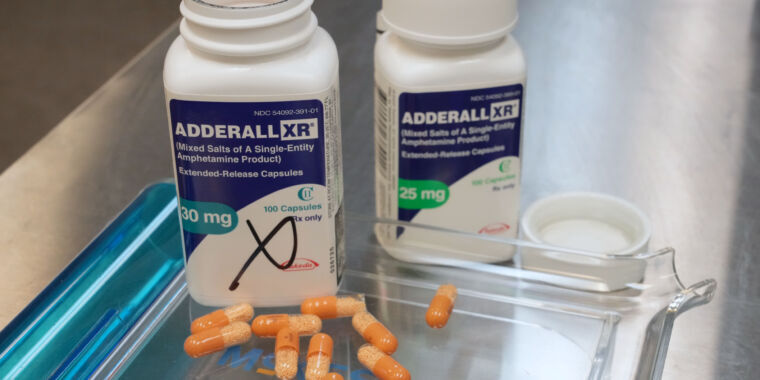The shortages affect everything from generic cancer drugs to ADHD medication.
Drug shortages in the US have reached an all-time high, with 323 active and ongoing shortages already tallied this year, according to data collected by the American Society of Health-System Pharmacists (ASHP).
The current drug shortage total surpasses the previous record of 320, set in 2014, and is the highest recorded since ASHP began tracking shortages in 2001.
“All drug classes are vulnerable to shortages,” ASHP CEO Paul Abramowitz said in a statement Thursday. “Some of the most worrying shortages involve generic sterile injectable medications, including cancer chemotherapy drugs and emergency medications stored in hospital crash carts and procedural areas. Ongoing national shortages of therapies for attention-deficit/hyperactivity disorder [ADHD] also remain a serious challenge for clinicians and patients.”
Erin Fox, associate chief pharmacy officer of University of Utah Health, told CBS MoneyWatch, that most of the drugs in short supply are generic, older products, and around half are injectable drugs that require more stringent manufacturing processes.



A lot of the drug shortages are caused by capitalist patent monopolies, so yeah.
It also looks like a very capitalist problem causing shortages of generics, from TFA:
The made to order business model being crammed into every manufacturing facility combined with an erratic supply chain for bulk goods (think refined pharma/GMP type goods) has done wonders for middle management. Virtually no overhead, incredibly lean staffing and no WIP (works in progress) mean any hiccup creates a shortage because just one batch/campaign with any issues puts entire orders on hold. So they can dictate the price at any point.
Meanwhile if you work in or around these places you know it’s miserably understaffed, constantly short materials and what you are getting is a lot of the time failing initial Quality Control sampling.